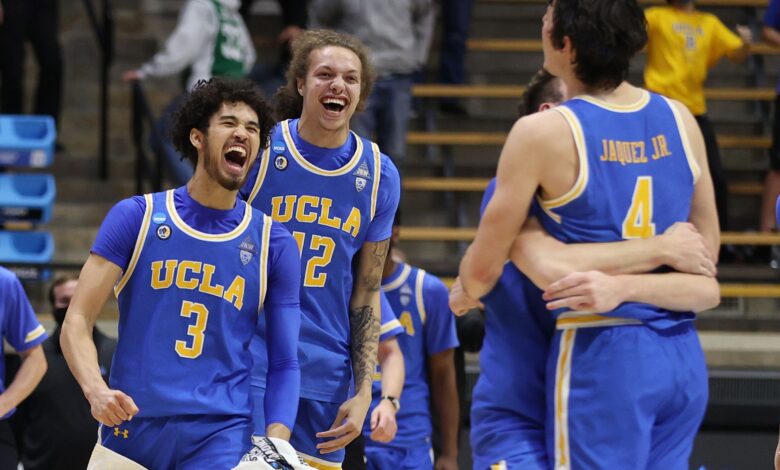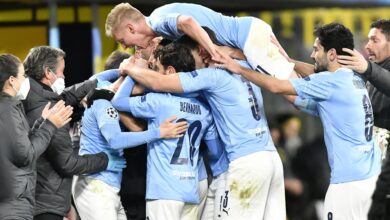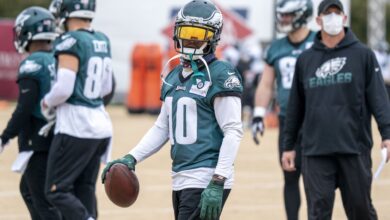NCAA tournament: Welcome back, March Madness

[ad_1]
Shane Battier played 13 seasons in the NBA. He appeared in three NBA Finals, winning two of them.
He counted LeBron James, Yao Ming and Dwyane Wade, among others, as teammates. He battled in some of the most ferocious and finely played playoff series in history, was part of two of the four longest win streaks of all time and became the pioneer poster boy for the use of advanced stats to understand how basketball could and should be played.
And yet, when he ventures to certain places in the country and runs into random fans he is still known for just one thing.
Duke; the team he helped lead to the 2001 national title 20 years ago.
“I feel the love,” Battier said before laughing. “And the hate.”
Yes, there are people still throwing scorn on a now mild-mannered 42-year-old father of two, who drives the school carpool, plays golf and works out his inner intellectual as the Miami Heat vice president for Basketball Development and Analytics, an otherwise benign profession.
Well, of course, they do. That’s March Madness. Battier wouldn’t expect it any other way.
“What I get a lot, is ‘I hate Duke. But I respected you,’” Battier said. “I say, ‘OK. Thanks?’”
The NCAA men’s basketball tournament kicks off this weekend. At last. It was essentially the only major sporting event completely lost due to the pandemic. Everything else, perhaps even the 2020 Summer Olympics, was just delayed. And even if it was played under unusual circumstances — a fall Masters without fans, for example — it was still played.
Not March Madness, though. And what was lost was not just the lack of a winner. This tournament is as much about the journey as the destination, the characters as much as a champion.
“The tournament is different for everyone,” Battier said. “Everybody has different goals.”
Some are here to win it all. Some are here to win at all. Some are just here. Happily.
That’s what was lost, the three weeks of mayhem and upsets and heroes and villains. No days on end of wall-to-wall games. No out of nowhere storylines. No reminders that, say, there is not only an eastern part of Washington, but an actual school named Eastern Washington.
Mainly there was no chance for another chance Shane Battier, among others, who are forever remembered by many, no matter what he goes onto accomplish in sport and in life, for anything other than what he did during this event.
Oh, in South Florida, Battier is a beloved champion with the Heat, the guy who drained six three-pointers against San Antonio in the epic Game 7 of the 2013 Finals. And elsewhere he’s the guy who when he was in Houston was tasked with trying to shut down Kobe Bryant, or one of the key players in that 2012 Eastern Conference Finals between Miami and Boston, or any number of other big professional moments.
But to college fans and casual fans, it’s Duke, even if the number of games were fewer and less dramatic, the television ratings smaller and the events longer ago.
“Filling out the brackets is the national pastime though, Battier said. “What Americans love about the tournament is that it is a win or go home situation. The finality of the situation. Your season could end tomorrow. It’s cruel, but it’s also exhilarating.”
It makes this event not just something you consume, but that rather something that can consume you. College hoops is, relatively speaking, not a particularly popular sport. Yet its tournament tends to define legacies and imprint collective memories in ways that outpaces the sheer number of viewers. It’s emotional. It’s exhilarating.
It is, as Battier notes, cruel to 67 of the 68 participants. There are tears. Always. Lots of them. He knows. He won 16 NCAA tournament games. He lost three of them though, including the 1998 Finals to Connecticut when he was a sophomore.
It’s what makes this impossible to ignore.
This isn’t solely about big-market, big-city, big-revenue pro sports. It isn’t about matchups and adjustments across a two-week series of games. It’s one and done, one night and dream. It’s how everyone has a chance, from the 16 seed (hail UMBC), to the 1,800-enrollment private school (St. Bonaventure), to the first time entrant named after a geological phenomenon (Grand Canyon).
It’s where the favorite is somehow a small Jesuit school in Spokane, Washington. It’s where pastoral, benevolent states such as Iowa and Kansas can be feared. Where a team from Des Moines (Drake) is set to take on a team from Los Angeles (USC). It’s how schools representing 33 states and the District of Columbia are in the field, everywhere from Corvallis to Chicago. There is something for everyone. Even a 101-year-old nun.
Brackets draw people in, but so does the universal appeal of the upset. Which is why if Abilene Christian threatens Texas, you can find yourself not caring as much about the office pool. And if Morehead State leads West Virginia, then you root for Morehead State even if you didn’t know we had a state named Morehead.
Whatever. It’s March. You watch. And the names and faces and jerseys get seared into memories. Well, sort of.
“People will either remember every game and everyone on the roster or they’ll say, ‘I remember you playing Grant Hill and Bobby Hurley,’” Battier laughed.
Battier was in the sixth grade when that group of Duke Blue Devils won their first title, in 1991. It doesn’t matter. He’ll take it.
The love. The hate. The March.
It’s America’s Tournament, back once again.
More from Yahoo Sports:
[ad_2]
Source link




